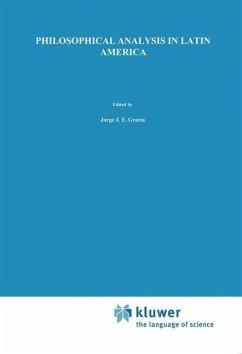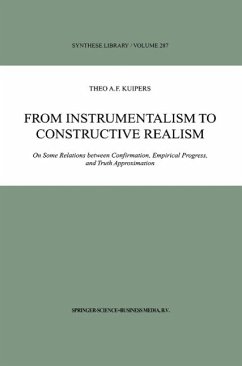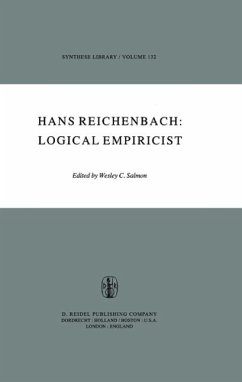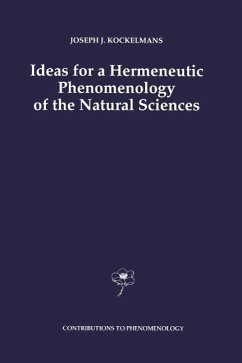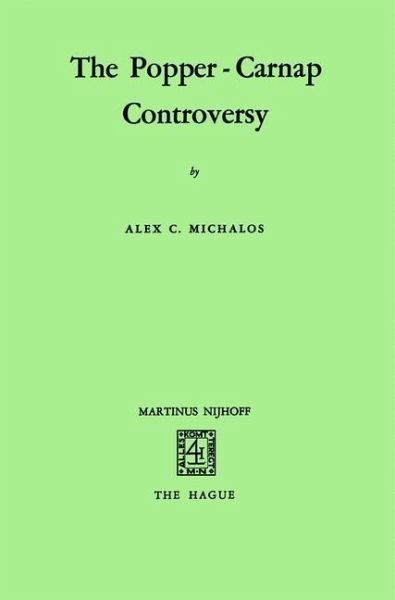
The Popper-Carnap Controversy (eBook, PDF)
Versandkostenfrei!
Sofort per Download lieferbar
40,95 €
inkl. MwSt.
Weitere Ausgaben:

PAYBACK Punkte
20 °P sammeln!
1 In 1954 Karl Popper published an article attempting to show that the identification of the quantitative concept degree of confirmation with the quantitative concept degree of probability is a serious error. The error was presumably committed by J. M. Keynes, H. Reichen bach and R. Carnap. 2 It was Popper's intention then, to expose the error and to introduce an explicatum for the prescientific concept of degree of confirmation. A few months later Y. Bar-Hillel published an article attempting to show that no serious error had been committed (particularly by Carnap) and that the problem introd...
1 In 1954 Karl Popper published an article attempting to show that the identification of the quantitative concept degree of confirmation with the quantitative concept degree of probability is a serious error. The error was presumably committed by J. M. Keynes, H. Reichen bach and R. Carnap. 2 It was Popper's intention then, to expose the error and to introduce an explicatum for the prescientific concept of degree of confirmation. A few months later Y. Bar-Hillel published an article attempting to show that no serious error had been committed (particularly by Carnap) and that the problem introduced by Popper was simply a "verbal one. "3 Popper replied immediately that "Dr. Bar-Hillel forces me [Popper] now to criticize Carnap's theory further," and he [Popper] introduced further objections which, if accepted, destroy Carnap's theory. 4 About eight years after this exchange took place I was in graduate school at the University of Chicago in search of a topic for a doctoral dissertation. An investigation of the issues involved in this exchange seemed to be ideal for me because I had (and still have) a great ad miration for the work of both Carnap and Popper. A thoroughly revised and I hope improved account of that investigation appears in the first five chapters of this book. Put very briefly, what I found were four main points of contention.
Dieser Download kann aus rechtlichen Gründen nur mit Rechnungsadresse in A, B, BG, CY, CZ, D, DK, EW, E, FIN, F, GR, HR, H, IRL, I, LT, L, LR, M, NL, PL, P, R, S, SLO, SK ausgeliefert werden.




